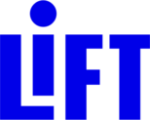When I was fourteen and just entering the terrifying world of high school, I thought that a relationship meant having someone hold your hand in public and always tell you that you’re beautiful despite your blotchy skin and rainbow braces. It might be a bit of a stretch, but honestly, that’s still what I think a good relationship is: seeing past someone’s flaws and viewing them as the straight teeth beneath their ugly braces. A weird metaphor, I know, but stay with me.
The first day I visited LIFT’s regional office in DC, I got to observe some of the hands-on work that happens with LIFT members. But first, I received a training about what occurs at each member session. I was briefed on financial coaching, lifestyle goals and mentorship, but something called “unconditional positive regard” struck me the most. Unconditional positive regard is essentially the basic acceptance of a person without passing negative judgments regardless of what that person does. And this is exactly the way in which LIFT views its members (the parents and caregivers of young children that LIFT serves).
I have always thought that my parents have a perfect relationship. I’m sure it can’t be perfect all the time, but it certainly seems that way. And now, hearing about unconditional positive regard, it all makes sense. My dad built a museum of giant saws, wax figures, and medical instruments in our backyard and my mom just planted pretty flowers around its doors. My mom continues to go to the SPCA and return home with another animal and my dad just quietly buys another lint brush for the dog hair. They simply accept each other. No judgment. They are who they are.
LIFT itself is built upon this kind of relationship. Relationships exist between LIFT and its partner organizations, relationships exist between different teams in the office, but most importantly, relationships exist between LIFT advocates and coaches and LIFT members.
I used to think that unconditional positive regard was a quality that I already possessed. I have spent many years working with students with special needs and I have always been disgusted with the way in which they are kept separate from other students in schools, isolated from the world and seen only as their disadvantages. I have fought against the outrageous classification of them as students-with-special-needs and not as simply students. But my short time at LIFT has already shown me that I do not practice what I preach.
LIFT members represent another subset of the population that is consistently seen as their negative qualities: they are financially unstable, sure, but what else? They are parents. LIFT puts a great emphasis on its two-generation approach to breaking the cycle of poverty. These parents, like all parents, only want what is best for their children. These parents, like all parents, want the promise of a stable future. Maybe they aren’t so different, after all.
My first week here, I had the opportunity to shadow a coaching session with a LIFT member. Before the session, I read descriptions of her past meetings with us. From her files, I learned that she was enrolled in college on a scholarship but had failed to show up to her classes. She was threatened with expulsion if her attendance and GPA did not rise by the end of the semester. Reading her files, I thought to myself how sad it was that she did not show up to class. She had an amazing opportunity to get an education and she was throwing it all away.
I could not have been more wrong. During the session, I did not see a flippant, delinquent student who couldn’t care less if she went to class. Instead, I saw a worried mother, trying to balance her personal goals with providing for her child, trying to fit in work and school and parenting all in the same hours of the day.
I am slowly learning what it means to have unconditional positive regard.
Growing up in a small town, I was always taught to keep my head low in cities and never make eye contact with people I pass on the street. On my visit with LIFT to local organization Bread for the City, we passed by more people living on the streets than I have ever seen. One of them called “hello,” and flashed a toothy grin. To my surprise, the LIFT coach interrupted his conversation with us, smiled back, said hello and proceeded to pick up the conversation where we left off. For him, it seemed so natural, but for me, it was monumental. People without homes are not people-without-homes, they are simply people.
I am slowly learning what it means to have unconditional positive regard.
Before coming to LIFT, I did not fully comprehend the enormous wingspan of poverty in urban areas and I am only beginning to tap into the vast financial inequity that exists within DC. In my eight weeks here, I might not even begin to delve into the complex financial issues consuming the families that we serve. That being said, I can understand something perhaps even more vital to the organization—the power of relationships. LIFT strips down any convoluted definition of relationships we might have to its most basic (and yes, pre-teen) form, and I love it. I think that everyone could learn something from LIFT—I know that I certainly have. I will continue to look for ways in my life in which I pass judgment, even (and especially) subconsciously, and I urge you to do the same. After all, we are all just people.
This blog post was written by Rosie Arbittier, a student at Princeton and a summer 2017 intern at LIFT.
